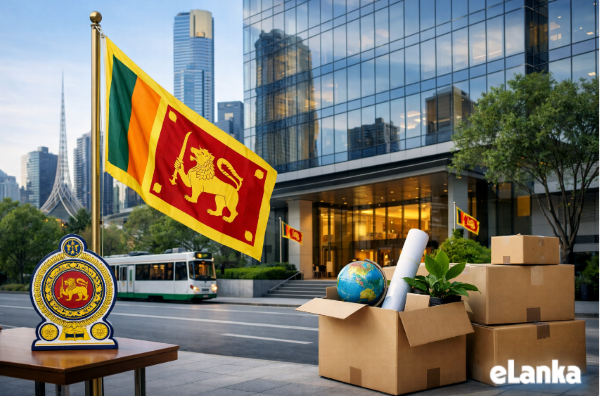Traditional system of sir Lankan medicine – Ayurveda – By Malsha – eLanka
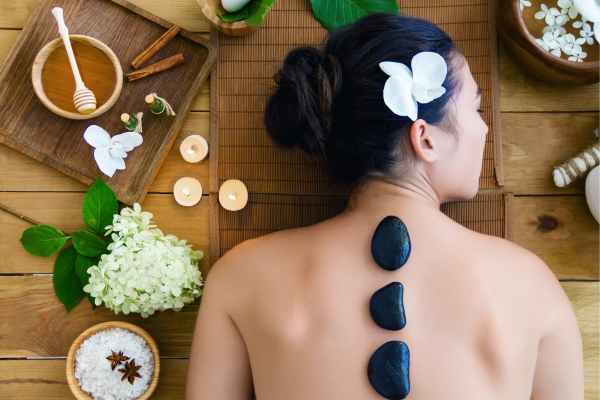
Ayurveda is a traditional system of medicine that has been practiced in Sri Lanka for thousands of years. It is a holistic approach to health that emphasizes the balance between the body, mind, and spirit.
Sri Lanka has a rich history of Ayurvedic medicine, and there are many Ayurvedic hospitals, clinics, and spas throughout the country. These facilities offer a range of treatments, including massages, herbal medicines, and dietary recommendations.
Many tourists visit Sri Lanka specifically to experience Ayurvedic treatments, and there are also many local residents who rely on Ayurvedic medicine for their healthcare needs. The Sri Lankan government has recognized the importance of Ayurveda and has established a Ministry of Indigenous Medicine to promote and regulate the practice of Ayurvedic medicine in the country.
Overall, Ayurveda continues to play an important role in the healthcare system of Sri Lanka and is a valued part of the country’s cultural heritage.
History sir Lankan Ayurvedic medicine
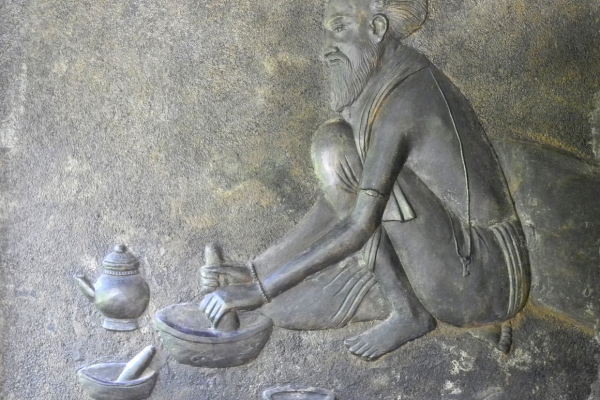
The history of Ayurvedic medicine in Sri Lanka dates back to ancient times, and the country has a rich tradition of Ayurvedic knowledge and practice. Ayurveda was first introduced to Sri Lanka by Indian settlers and was later developed and refined by local practitioners.
One of the earliest known Ayurvedic texts is the “Sarvajna-Vaidya-Sangraha,” which was written in the 14th century by a Sri Lankan Ayurvedic physician named Siddhartha. This text includes detailed descriptions of diseases, their causes, and various treatments, including herbal remedies and massages.
During the reign of King Parakramabahu the Great (1153-1186 AD), a special hospital was established for the treatment of Ayurvedic medicine, known as the “Sarvodaya Vishrama Sala.” This hospital was staffed by trained Ayurvedic physicians and offered a range of treatments to patients.
Over the centuries, Ayurveda continued to be practiced and developed in Sri Lanka, with the establishment of various schools and colleges dedicated to the study of Ayurvedic medicine. Today, Sri Lanka is recognized as one of the leading countries in the world for Ayurvedic medicine, and the practice of Ayurveda remains an integral part of the country’s healthcare system and cultural heritage.
why important Ayurvedic medicine in sri lanka
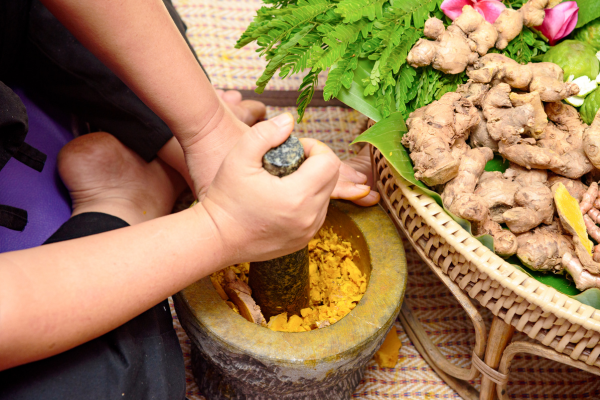
Ayurvedic medicine is important in Sri Lanka for several reasons:
- Cultural Heritage: Ayurveda is deeply ingrained in Sri Lankan culture and has been practiced for thousands of years. It is a valued part of the country’s heritage and is considered to be an important aspect of the Sri Lankan identity.
- Holistic Approach: Ayurveda takes a holistic approach to health and wellness, emphasizing the importance of balancing the body, mind, and spirit. This approach is aligned with Sri Lankan cultural values, which emphasize the importance of living in harmony with nature.
- Accessibility: Ayurvedic medicine is accessible to a wide range of people in Sri Lanka, including those in rural areas who may not have access to modern medical facilities. Ayurvedic remedies and treatments are often affordable and can be obtained from local practitioners.
- Effectiveness: Ayurvedic medicine has been shown to be effective in treating a wide range of conditions, including chronic diseases and mental health disorders. Sri Lankan practitioners have developed their own unique approaches to Ayurvedic medicine, which have been refined over centuries of practice.
- Tourism: Ayurvedic medicine is a popular form of healthcare among tourists visiting Sri Lanka, generating revenue for the country’s economy. Many tourists come to Sri Lanka specifically to experience Ayurvedic treatments, which are often combined with yoga and meditation for a holistic wellness experience.
Overall, Ayurvedic medicine is important in Sri Lanka for its cultural significance, accessibility, effectiveness, and potential economic benefits. It remains an integral part of the country’s healthcare system and cultural identity.
what are the parts of sri lanka Ayurvedic medicine
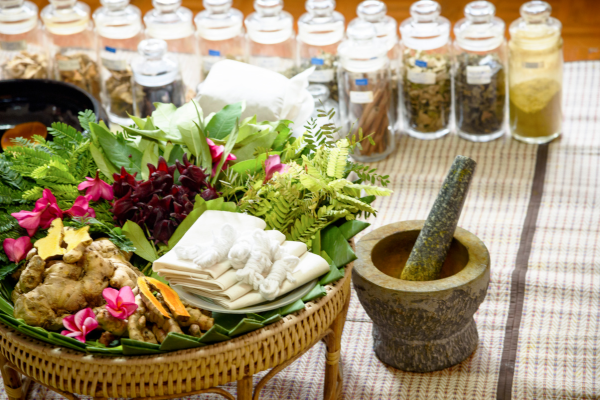
The practice of Ayurvedic medicine in Sri Lanka is based on a holistic approach that aims to balance the body, mind, and spirit. Here are some of the key components of Sri Lankan Ayurvedic medicine:
- Diagnosis: Ayurvedic diagnosis in Sri Lanka involves a thorough examination of the patient’s physical and mental state, as well as their lifestyle and environment. This is done through methods such as pulse diagnosis, observation, and questioning.
- Herbal medicine: Herbal medicine is a key component of Ayurvedic medicine in Sri Lanka. Local herbs and plants are used to create a range of remedies and formulations, which are tailored to the individual patient’s needs.
- Massage: Massage is a popular Ayurvedic treatment in Sri Lanka, and several different types of massage are used, such as abhyanga, shirodhara, and pinda sweda. These massages are designed to help balance the body and mind, reduce stress, and promote overall wellbeing.
- Diet and lifestyle: Ayurvedic practitioners in Sri Lanka emphasize the importance of a healthy diet and lifestyle. Patients are given dietary recommendations based on their individual needs and may be advised to make changes to their daily routine to promote balance and wellness.
- Yoga and meditation: Yoga and meditation are often combined with Ayurvedic treatments in Sri Lanka to promote physical, mental, and spiritual wellbeing. These practices are believed to help balance the body and mind, reduce stress, and improve overall health.
Overall, the practice of Ayurvedic medicine in Sri Lanka is characterized by a holistic approach that takes into account the individual needs of each patient. The focus is on promoting balance and harmony within the body, mind, and spirit, using natural remedies and lifestyle recommendations to support overall health and wellbeing.
how to use Ayurveda for healthy life
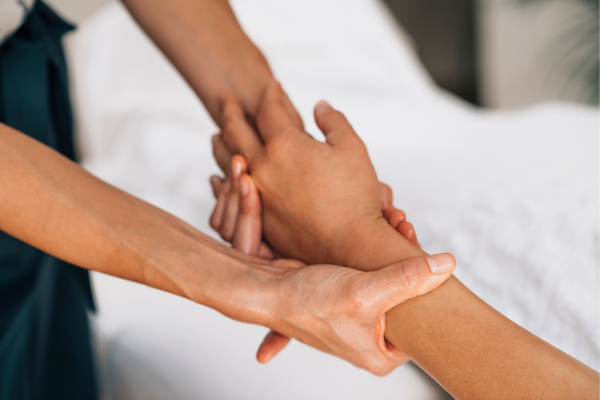
Ayurveda can be used to promote a healthy and balanced lifestyle. Here are some tips for using Ayurveda to support overall health and wellbeing:
- Know your dosha: Ayurveda recognizes three doshas, or energy types, known as Vata, Pitta, and Kapha. Understanding your dosha can help you make lifestyle and dietary choices that are in line with your unique needs.
- Eat a balanced diet: Ayurveda emphasizes the importance of a balanced diet, which includes whole foods, fresh fruits and vegetables, healthy fats, and proteins. Eating foods that are appropriate for your dosha can help promote optimal digestion and overall health.
- Practice mindful eating: Ayurveda places a great deal of emphasis on mindful eating, which involves paying attention to the flavors, textures, and smells of food, and eating in a relaxed and peaceful environment.
- Practice daily self-care: Ayurveda emphasizes the importance of daily self-care practices, such as meditation, yoga, and self-massage, to promote overall health and wellbeing.
- Get enough rest: Adequate rest is essential for optimal health, and Ayurveda recommends getting seven to eight hours of sleep each night.
- Manage stress: Ayurveda recognizes the negative impact that stress can have on the body and mind, and offers a variety of stress-reducing techniques, such as meditation, yoga, and breathing exercises.
- Use natural remedies: Ayurveda offers a range of natural remedies, such as herbs, oils, and spices, to support overall health and wellbeing. These remedies can be used to address specific health concerns or to promote general wellness.
Overall, Ayurveda can be used as a guide to promote a healthy and balanced lifestyle. By making conscious choices around diet, self-care, rest, stress management, and natural remedies, you can support your overall health and wellbeing according to the principles of Ayurveda.
How to use Ayurveda for beauty purpose
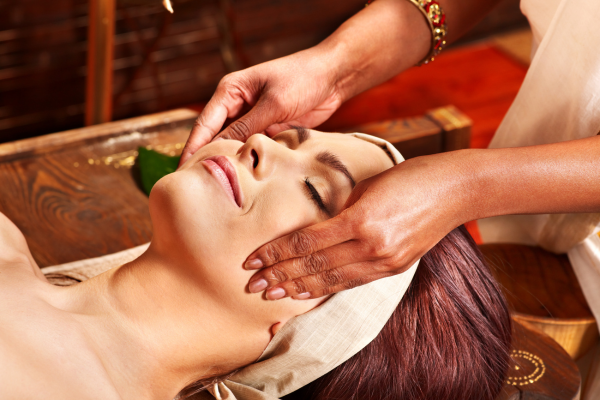
Ayurveda offers a natural and holistic approach to beauty that focuses on promoting healthy and radiant skin, hair, and overall wellbeing. Here are some tips for using Ayurveda for beauty purposes:
- Determine your skin type: Ayurveda recognizes three skin types: Vata, Pitta, and Kapha. Understanding your skin type can help you choose products and ingredients that are best suited to your individual needs.
- Use natural ingredients: Ayurveda emphasizes the use of natural ingredients in skincare and haircare. Some common Ayurvedic ingredients include turmeric, neem, aloe vera, sandalwood, and rose water.
- Practice facial massage: Ayurvedic facial massage can help improve circulation, reduce puffiness, and promote a healthy glow. Massage your face in gentle circular motions using a facial oil or ghee.
- Use herbal hair treatments: Ayurveda offers a range of herbal treatments for hair, such as oiling, herbal rinses, and hair masks. These treatments can help improve the health and appearance of your hair.
- Practice self-care: Ayurveda emphasizes the importance of self-care in promoting overall beauty and wellbeing. This can include practices such as meditation, yoga, and self-massage.
- Eat a balanced diet: A healthy and balanced diet is essential for healthy skin and hair. Ayurveda emphasizes the importance of a diet that includes a variety of fresh fruits and vegetables, healthy fats, and proteins.
- Stay hydrated: Drinking plenty of water is essential for maintaining healthy skin and hair. Ayurveda recommends drinking warm water throughout the day to help improve digestion and promote overall wellbeing.
Overall, Ayurveda offers a natural and holistic approach to beauty that focuses on promoting healthy and radiant skin, hair, and overall wellbeing. By using natural ingredients, practicing facial massage and herbal hair treatments, and practicing self-care and a balanced diet, you can support your beauty goals according to the principles of Ayurveda.



















